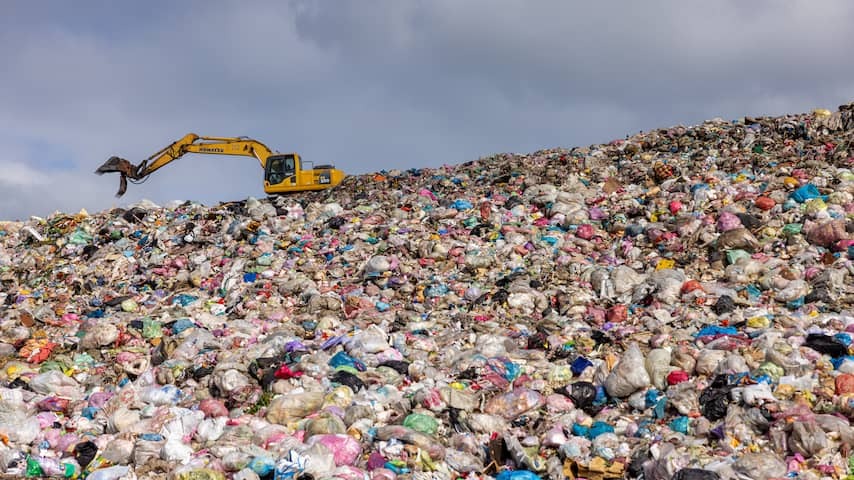
Experts react disappointed at the lack of a global treaty on plastic waste. The Rapid Growth of Plastic Production and the Associated Environmental and Health Problems Worry Them. “Further Delay Only Makes the Problem worse.”
Representatives from more than 180 Countries Failed to Reach A Plastic Treaty in Geneva Over The Past Week and A Half. The contradictions between Ambitious Countries Demanding Action and Oil States Proved Too Great. As a result, a joint solution to plastic pollution and health damage from plastic remains out of sight for the time being.
The Stalemate is Disappointing But Not Unexpected, Says Esther Kentin, Lecturer at Leiden University and Specialized in International Environmental Law. She predicted in Advance that the Summit had Little Chance. Accordance to Her, Oil-Producing Countries See No Reason to Compromise, While They Actual Earn A Good Living From Plastic Production. “They actual just have what they want now: no treaty.”
Ambitious Countries Can Offer The Oil States Little ‘Leverage’ to Accept A Far-Reaching Treaty, Kentin Analyzes. And the proponents of a treaty have seen an important Ally Leave. Under President Joe Biden, the United States was a still in favor of A (Limited) Plastic Treaty, But The Donald Trump Administration is Emphatically Joining the Camp of Saudi Arabia and Russia.
The US Has Become the Largest Oil Producer in the World In The Past Fifteen Years, and the Country also Makes A Lot Of Plastic. The Trump Administration Wants To Scrap As Many Climate and Environmental Rules As Possible and Finds Limitation Plastic Production Non-Negoable.
“It is terrible complicated that a country like the united states, which on the one hand say stands up for freedom, free trade and the economy, is in the camp of russia, china and saudi arabia,” Said outgoing and water state pressy arassen or infrastructure or infrastructure or infrastructure or infrastructure or infrastructure or infrastructure or infrastructure or infrastructure or infrastructure or infrastructure and infructy tierry press The Continues to Hope for an International Agreement and Wants To Discuss follow-up Steps with his European Colleagues.
‘Postponing Problem for US’
In The Meantime, The Plastic Problem, Only Getting worse, Says Professor of Environmental Epidemiology Roel Vermeulen of Utrecht University. “The fact that we don’t have an agreement after a sixth consultation mean that we are postponing the problems for ourelves.”
Vermeulen Co-Authored an International Study That Appeared in Medical Journal The Lancet Just Before the Plastic Summit. It describes the Global Health Damage caused by plastic.
That is large and voice from the entire ‘life cycle’ or plastic. For Example, Air Pollution is Created Dooring the Extraction of Oil and the Production of Plastic. Later in the chain, chemical additives to plastic have health effects, as do the micro and nanoplastics that are increasingly found in the environment and in our bodies. Research is Still Being Carried Out Into The Effects of This.
Plastic Production is Strongly on the Rise
The Known Damage is Estimated at More Than 1,250 Billion euros per year. “That mean that we don’t have to wait for all the knowledge about what micro and nanoplastics do, but that we have to intervene now,” Says Vermeulen. “Let’s not confuse scientific uncertainty with uncertainty about what we should do.”
To prevent Environmental and Health Problems from Growing Further, Vermeulen Believes We Need to Limit Plastic Production and Look for Sustainable Alternatives. Accordance to Current Forecasts, That Production Will Triple in the Coming Decades Without Measures, to 1.2 Billion Tons per year.
The Professor Hopes That Countries Will Take Matters Into Their Own Hands And Take Independent Measures in The Absence of An International Treaty. “Further Delay Only Makes the Problem Werse. Every Small Step is Already Important To Take.”
Criticism of the Lack of a Solution Does Not Only Come From Science. A Business Coalition That Advocates A Plastic Treaty is also reacting with disappointment. Multinationals Such As Unilever, Nestlé and Pepsi Hope for Global Agreements, so that they do not have to deal with differential policies in Every Country. The Coalition calls for stopping “Problematic and avoidable” plastics and a stronger commitment to reuse and recycling.